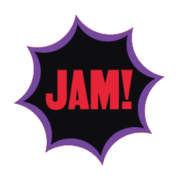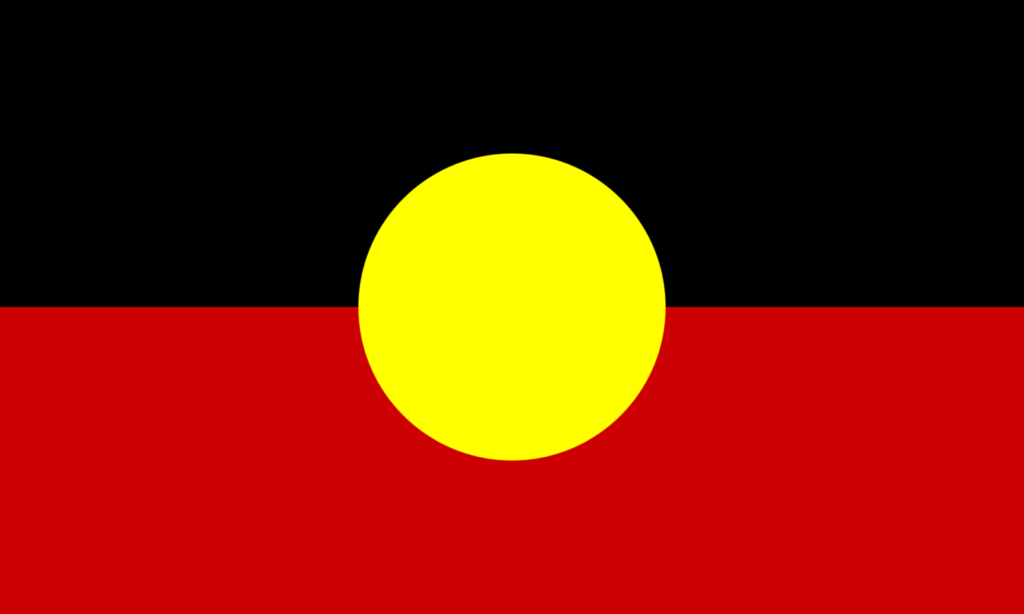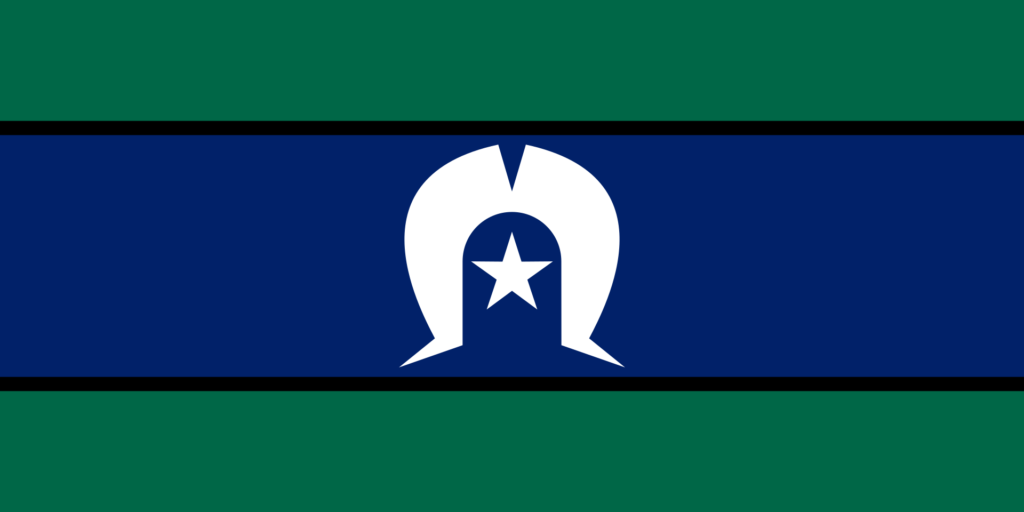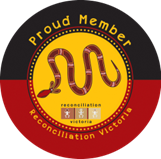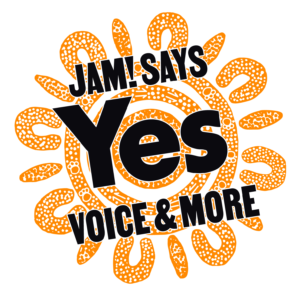
JAM!’s response to the VOICE Referendum result
JAM! is devastated by the outcome of the Voice to Parliament referendum and the deep hurt and sadness it has evoked among many Indigenous and non-Indigenous Australians.
In response to the shameful result, JAM! fully supports the recent statement to the Prime Minister, Federal Parliament and all Australians by a group of Indigenous leaders, community members and organisations.
Furthermore, we again acknowledge the profound vision of the Uluṟu Statement from the Heart and its call for ‘agreement making between government and First Nations and truth-telling about our history.’ Now is a time to listen, understand and love more deeply.
Reflecting our position of ‘Yes to Voice and More’ (see below), JAM! remains steadfast in our ongoing commitment to First Nations justice. While the result is not what we had hoped for, there were some positives at a local level. The federal electoral divisions of Fraser and Gellibrand, which encompass the Maribyrnong LGA, both gained Yes results – 56.53% and 52.5% respectively. Whilst campaigning, our conversations with community members reflected a strong commitment to bring about positive change.
JAM! is determined to build on these strengths and to continue our work addressing injustices and pursuing opportunities which facilitate engagement and education about First Nations cultures, knowledges and histories. We will harness this momentum and continue to seek meaningful systemic change with local bodies e.g. Maribyrnong City Council, who can support First Nations’ justice and cultures.
Take action!
If the Referendum outcome has you more resolved to support First Nations justice or left you feeling sad, depressed or hopeless about the possibility of positive change, JAM! encourages you to take some action. Below is a short list of things you could do and if you require personal support, please contact 13 9276 (YARN), The Healing Foundation or Lifeline 13 1114.
1. Support First Nation’s organisations. Many organisations need your physical and financial support. See the JAM! Donation page.
2. Sign and Send an Email Letter. JAM! prepares letters to relevant government bodies/organisations about various issues for you to simply sign and send. See the JAM! Action page.
3. Connect with and support First Nation’s organisations businesses, artists and performers. For example, locally, you can check out what’s happening at Footscray Community Arts, Kindred Studios or see the events at Maribyrnong Arts & Culture. See the JAM! Connect page. Attend First Nations events and, rallies – significant dates can be found on the JAM! First Nations Calendar page.
4. Sign-up via our webpages to stay up-to-date with JAM!’s newsletters and follow JAM! on Facebook.
5. Use your email list, social media channels and volunteer communications to share what’s at stake and help people make sense of this moment. Refer to this Messaging Guide in shaping your communications.
6. Broaden your own and others’ education. Learn about and support the First People’s Assembly of Victoria – ‘Treaty for Victoria’; Enrol in a course e.g. Victoria University courses and units with an Indigenous focus; read books and newspapers by and about First Nations peoples e.g. National Indigenous Times, The Sun Bookshop or The Chestnut Tree or Koorie Heritage Trust or your local library for books; watch and listen to First Nations TV and radio programs and podcasts e.g. NITV TV and Radio, ABC Awaye!, RRR Indigenuity or The Mission, ABC iView Indigenous, 3CR Radio various programs; see First Nations films e.g. The Last Daughter – available on Netflix.
JAM! says ‘Yes to Voice & More’
The Aboriginal and Torres Strait Islander Voice Referendum
(The Voice) (Ref 1.)
Updated: 27 September 2023
Summary
JAM! supports a ‘Yes to Voice & More’ response to the Referendum on the recognition of Aboriginal and Torres Strait Islander peoples in the Australian Constitution as the First Peoples of Australia through the establishment of a Voice to the Commonwealth Parliament and Executive. The ‘Yes to Voice & More’ response means that we support in full the call made in the Uluru Statement from the Heart which includes Voice, Treaty & Truth (makarrata). JAM! considers the Voice a beneficial first step toward equity and Closing the Gap with First Nations peoples and will continue to support the call for Treaty & Truth (makarrata). JAM! believes a ‘Yes to Voice & More’ response not only signals community expectations that the government continues to respond positively to First Nations offers beyond the Voice but also strives to bring Australia in line with other liberal democracies.
Statement
JAM! acknowledges all Aboriginal and Torres Strait Islander peoples as the First Peoples of this continent, now known as Australia, and pays respects to their Ancestors, Elders and families as the Traditional Owners/Custodians of these unceded lands. JAM! meets and works in ‘Mirring-gnay-bir-nong’ (Maribyrnong), which can translate as ‘I can hear a ringtail possum’, on the stolen lands of the Bunurong/Boonwurrung and Wurundjeri/Woiwurrung of the Kulin Nation. In 1937, William Cooper (Ref. 25.), a Yorta Yorta man who at times lived in Maribyrnong, raised a petition to King George VI with a thousand signatures seeking to prevent the extinction of the Aboriginal race; to secure better living conditions for all and to afford Aboriginal representation in Parliament. Prime Minister Lyons and the States blocked the petition, effectively silencing the voice of the petitioners.
JAM! acknowledges and respects both First Peoples’ and non-First Peoples’ informed views about The Voice. The JAM! Group has considered a range of information and views put forward in the current ‘debate’ and believes a ‘Yes to Voice & More’ response is a step forward in addressing injustices experienced by First Nations Peoples and can pave the way to a better future for all Australians. JAM! encourages all informed views to be put forward for consideration and respectful discussion.
JAM! recognises the distinctive rights held by First Nations peoples (Ref 2. & 3.) and the international acceptance of these standards (Ref 4.). JAM! also recognises the Australian High Court decision in the Mabo case, which overturned the ‘terra nullius’ doctrine and established native title to these lands for First Nations peoples prior to colonisation by the British and that those rights were not extinguished by British sovereignty (Ref. 5.).
JAM! acknowledges the recent call from Aboriginal and Torres Strait Islander peoples for The Voice flows from The Uluru Statement from the Heart (Ref 6.) and is one component of a call which includes Treaty and Truth (makarrata).
JAM! recognises the work undertaken by the Select Committee Inquiry into the Aboriginal and Torres Strait Islander Voice Referendum (Ref 7.). Whilst JAM! acknowledges the dissenting reports and additional comments, the Committee view and recommendations, having considered 269 written submissions and many further oral presentations, concludes, “… that the Bill is fit for purpose and meets the request expressed in the Uluru Statement from the Heart.” and, “… that the provision enabling Aboriginal and Torres Strait Islander Peoples to make representations to the Executive Government is appropriate, fit for purpose as per the wishes of First Nations peoples, and should not be amended.” and “Based on a careful examination of the evidence, the Committee is of the view that the Bill is constitutionally sound.” JAM! accepts the conclusions of the Select Committee.
JAM! acknowledges the history of First Nations peoples in seeking a ‘voice’ and the ongoing neglect and removal by governments of previously institutionalised voices e.g. ATSIC, and the failure of successive governments to Close the Gap (Ref. 8. & 9.).
JAM! understands that The Voice is only one side of a representative relationship, the other being the Australian Parliament and Executive. JAM! understands that whilst First Nations peoples may make representations, the responsibility to listen and act on those representations remains with the Parliament and Executive. Whilst some people may be sceptical about the Parliament and Executive to listen and act in the interests of First Nations peoples, ultimately this is subject to democratic accountability. Such accountability rests on the transparency of processes to the Australian public. The Voice presents an opportunity for greater transparency in regard to legislative and policy development on matters which concern First Nations Peoples. Furthermore, it is clear that better outcomes are achieved when those affected by legislation and policy are involved in their development.
JAM! understands that the structure and functioning of The Voice is subject to the will of the Parliament and may change over time reflecting functional/organisational requirements and the political positions of incumbent governments. This fact means The Voice is subject to democratic accountability and is able to be organised so that it remains ‘fit for purpose’ i.e. for the establishment and maintenance of equity for First Nations peoples.
JAM! understands that the detail of The Voice is the responsibility of the Parliament to establish following agreement through referendum to the principle of a constitutional change to recognise First Nations people through a Voice. The detail will be worked out according to the Design Principles agreed to by the First Nations Referendum Working Group (Ref. 23) and with reference to the Indigenous Voice Co-Design Process Final Report (Ref. 24). This is the normal process for the establishment of organisational functions within government i.e. principle agreement followed by detailed development. Again, scepticism about government capacity to establish The Voice in satisfactory detail is ultimately subject to democratic accountability.
JAM! recognises that, with the exception of NSW which may do so shortly (Ref. 26), South Australia (Ref. 10.), Victoria (Ref. 11.), Western Australia (Ref. 12.), Tasmania (Ref. 13), A.C.T. (Ref. 14), Northern Territory (Ref. 15) and Queensland (Ref. 16) are currently implementing Voice, Truth-telling and Treaty processes. JAM! sees Truth-telling and Treaty (makarrata – agreement making) as equally essential as The Voice in establishing the rightful place of First Nations peoples in Australia – addressing the ongoing issues of land-rights, sovereignty and self-determination (Ref. 3). JAM! believes the processes currently being undertaken at State level can usefully inform and contribute to such processes at a National level and that The Voice can play a significant role in moving toward these processes.
JAM! understands the YES / NO Referendum Pamphlet (Ref 17.) presents the political views of the Yes and No campaigns and that there was no requirement for the pamphlet content to be truthful (Ref 18.) JAM! relies on official, recognised and reliable sources of information to establish the veracity of claims about The Voice.
JAM! holds the ethical views that, “… the risks and harms of voting “No” far outweigh any potential risks and harms of voting “Yes”, and, accordingly, that any benefits of voting “No” are far outweighed by the benefits of voting “Yes”.” Also, the principles of, “… Justice, fairness, reparation, taking responsibility, promoting reconciliation, not doing harm, non-maleficence, cultural recognition and preservation, benefit to Australia as a whole …” (Ref. 19, 20, 21 & 22.) all lead to supporting a Yes response for the Voice.
Ethically and for the aforementioned reasons JAM! supports a ‘Yes to Voice & More’ response to the Referendum on The Voice.
References:
Referendum Question and Constitutional Amendment –
https://voice.gov.au/referendum-2023/referendum-question-and-constitutional-amendmentILO Indigenous and Tribal Peoples Convention 169 of 1989 (Not ratified by Aus) –
https://www.ilo.org/dyn/normlex/en/f?p=NORMLEXPUB:12100:0::NO:12100:P12100_INSTRUMENT_ID:312314:NOUnited Nations Declaration on Rights of Indigenous People 2007 (Aus signed 2009) –
https://social.desa.un.org/issues/indigenous-peoples/united-nations-declaration-on-the-rights-of-indigenous-peoples#:~:text=The%20United%20Nations%20Declaration%20on,%2C%20Bangladesh%2C%20Bhutan%2C%20Burundi%2CMorris, S. Wake up Australia: many liberal democracies have a First Nations voice. The Australian Newspaper (2022) –
https://www.mq.edu.au/research/research-centres-groups-and-facilities/groups/radical-centre-reform-lab/media/opinion-exp-content/wake-up-australia-many-liberal-democracies-have-a-first-nations-voice#:~:text=Liberal%20democracies%20worldwide%20value%20equality,even%20the%20ideology%20of%20liberalism.Mabo Case –
https://aiatsis.gov.au/explore/mabo-caseUluru Statement from the Heart –
https://ulurustatement.org/the-statement/Select Committee Inquiry into the Aboriginal and Torres Strait Islander Voice Referendum –
https://www.aph.gov.au/Parliamentary_Business/Committees/Joint/Former_Committees/Aboriginal_and_Torres_Strait_Islander_Voice_Referendum/VoiceReferendumClosing the Gap –
https://www.closingthegap.gov.au/Productivity Commission Report on Closing the Gap 2023 –
https://www.pc.gov.au/closing-the-gap-data/annual-data-report/reportSouth Australia – Voice to Parliament –
https://www.agd.sa.gov.au/first-nations-voiceVictoria – Yoorook Commission – https://yoorrookjusticecommission.org.au/ and
First Peoples Assembly – https://www.firstpeoplesvic.orgWestern Australia – Noongar Native Title Agreement –
https://antar.org.au/wp-content/uploads/2022/04/Treaty-in-WA-Factsheet.pdfTasmania – Truth Telling & Treaty Advisory Group –
https://www.premier.tas.gov.au/site_resources_2015/additional_releases/advisory-group-to-guide-process-for-truth-telling-and-treatyA.C.T. – Aboriginal and Torres Strait Islander Agreement 2019-28 –
https://antar.org.au/wp-content/uploads/2022/04/Treaty-in-the-ACT-Factsheet-.pdfNorthern Territory – Treaty Commission –
https://treatynt.com.au/Queensland – First Nations Consultative Committee on Indigenous Voice –
https://www.dsdsatsip.qld.gov.au/our-work/aboriginal-torres-strait-islander-partnerships/reconciliation-tracks-treaty/indigenous-voiceYES / NO Referendum Pamphlet (AEC) –
https://www.aec.gov.au/referendums/files/pamphlet/your-official-yes-no-referendum-pamphlet.pdfExpert analysis of the ‘Official Yes/No Cases’ published by the Australian Electoral Commission –
Guide – https://www.indigconlaw.org/home/a-guide-to-navigating-the-yes-and-no-cases
Detailed Analysis – https://mcusercontent.com/e799e29e9712ef9c2e0f6c25e/files/da4f9956-d197-fa34-56bc-e299c030159b/Expert_Analysis_Yes_No_Pamphlet_28_August.pdfThe ethics of voting “Yes” or “No” to a First Nations Voice to Parliament –
https://www.abc.net.au/religion/ethics-of-voting-yes-or-no-to-voice-to-parliament/102292726?fbclid=IwAR303u1IjGxy8vyRg5G1-Clp22m299t1NvqO3utBn17C8WwtXEQkQjrtdsAIs it ethical non-Indigenous people get to decide on the Voice? Is it OK for one group to have rights others don’t? An ethicist weighs in –
https://theconversation.com/is-it-ethical-non-indigenous-people-get-to-decide-on-the-voice-is-it-ok-for-one-group-to-have-rights-others-dont-an-ethicist-weighs-in-213977Statements from the Soul; the Moral Case for the Uluru Statement from the Heart –
https://www.blackincbooks.com.au/books/statements-soulVoice Referendum: Understanding the Referendum from a Human Rights Perspective (A resource kit) –
https://humanrights.gov.au/our-work/aboriginal-and-torres-strait-islander-social-justice/voice-referendum-understandingDesign Principles of the Aboriginal and Torres Strait Islander Voice –
https://voice.gov.au/sites/default/files/2023-06/design-principles-aboriginal-torres-strait-islander-voice.pdfIndigenous Voice Co-design Process Final Report (also known as the Calma-Langton Report)
https://voice.gov.au/resources/indigenous-voice-co-design-process-final-reportWilliam Cooper
https://en.wikipedia.org/wiki/William_Cooper_(Aboriginal_Australian)Chris Minns open to a NSW voice to parliament regardless of federal referendum outcome – The Guardian
https://www.theguardian.com/australia-news/2023/sep/16/chris-minns-open-to-a-nsw-voice-to-parliament-regardless-of-federal-referendum-outcome
